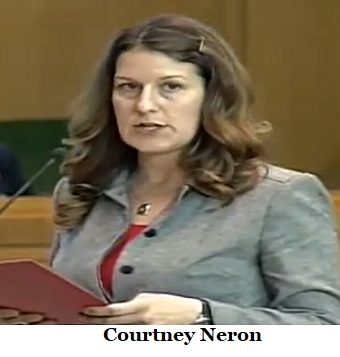The Federal government is shoveling out money
Governor Kate Brown’s state budget included a quarter billion-dollar tax increase on mostly small businesses. According to the Taxpayers Association of Oregon, Brown wants to gut the 2013 small business tax savings and raise $273 million by closing tax loopholes. If Governor Kate Brown gets her way, small family-owned businesses will be paying more taxes than big C-corporation businesses on the same level of revenue.
What should be a sign of relief to receive $1.4 billion from the federal relief bill passed in March, may be costly. There are strings attached to that windfall. If states accept the funds, they are restricted from lowering their taxes. Governor Brown’s push for new taxes is not what state governors are doing in states that are thriving.
- Iowa was sent $95 million to get kids back to school. Governor sent the money back and said our kids are back in school already.
- Kristi Noem, Governor of North Dakota, also refused federal funds saying their state is open for business and doesn’t need those kinds of restrictions.
- Tennessee Governor, Bill Lee, has a billion-dollar surplus and wants to make tax cuts. “We don’t want government to tell us what to do on immigration or what our kids learn in school.â€
Oregon’s $1.4 billion is after Oregon received $1.1 billion for Oregon schools, and $155 million for capital projects, and $1.5 billion for county, city and other local governments. The numbers start whirling when you think that in 2020 Oregon received $1.8 billion designated for specific projects by the emergency board, and $499 million for schools from Congress’ December relief bill, and $2.45 billion from the CARES act earlier in 2020. How much did all this money prop up the rosy May forecast?
Why would we accept restricted conditions to not lower taxes when accepting additional funds? Not to speak of the begging and graveling the counties and cities need to do to get their share released. While the state is focused on relief from the impact of COVID-19, the priorities seem to go deeper.
Despite all that inflow of federal dollars, the legislature still wants our kicker refund. Some bills take advantage of the emergency to justify tax credits for undocumented without social security numbers, landlords, spouse seeking degree, teaching in rural schools, and increasing workforce. And more specifically, health bills such as
HB 2337, introduced by Representatives Andrea Salinas (D-Lake Oswego), Teresa Alonso Leon (D-Woodburn) and Courtney Neron (D-Wilsonville), are coming out of the legislative session in lock-step with federal requirements for funds.
HB 2337 appropriates $2 million General Funds for two pilot mobile health units. The bill “declares racism a public health crisis; requires a study of the collection of information with respect to race, ethnicity, preferred spoken and written languages, and disability status; establishes grants to operate two mobile health units for underserved communities as a pilot program; and requires OHA to develop recommendations to fund culturally and linguistically specific intervention programs across all relevant state agencies.â€
A D V E R T I S E M E N T

A D V E R T I S E M E N T
HB 2474 is another bill that will impact low-income families the most by the costs to businesses, stop production, and delay harvesting increasing food costs during an emergency. “During a public health emergency, the amount of time an employee must work for an employer before becoming eligible to take leave is reduced from 180 to 30 days and eligibility for employees can be reestablished if they separate and are reemployed by the same employer within 180 days or because of a temporary cessation of scheduled hours.â€
The Federal government is shoveling out money rewarding states that made bad policies, and now enabling them to stick with those bad policies. Federal funds may not be the relief we hope for when it’s used for new projects that demands new taxes. What were policies to help the low income is having the reverse effect.
--Donna Bleiler| Post Date: 2021-05-31 20:02:07 | Last Update: 2021-05-31 20:04:03 |







